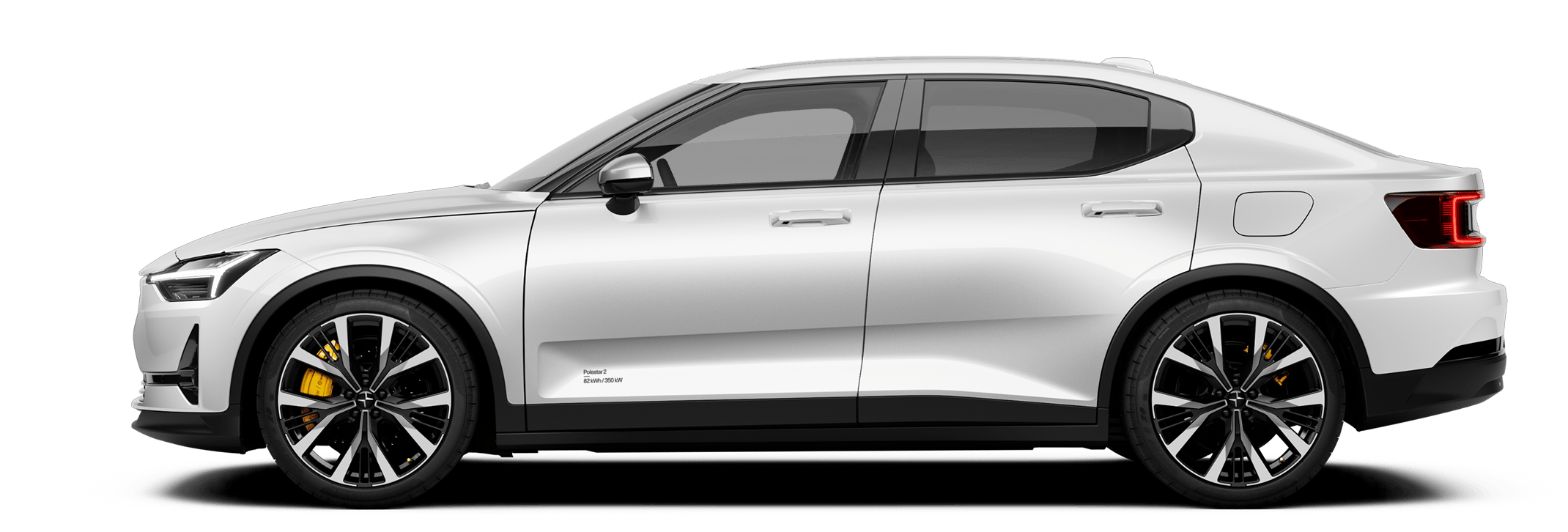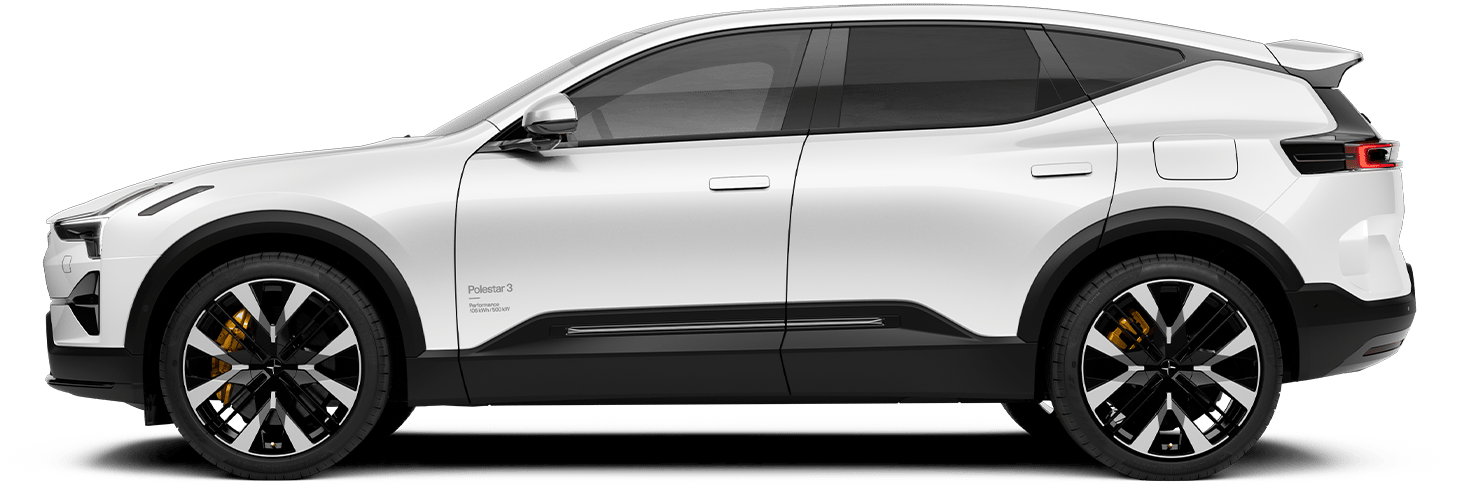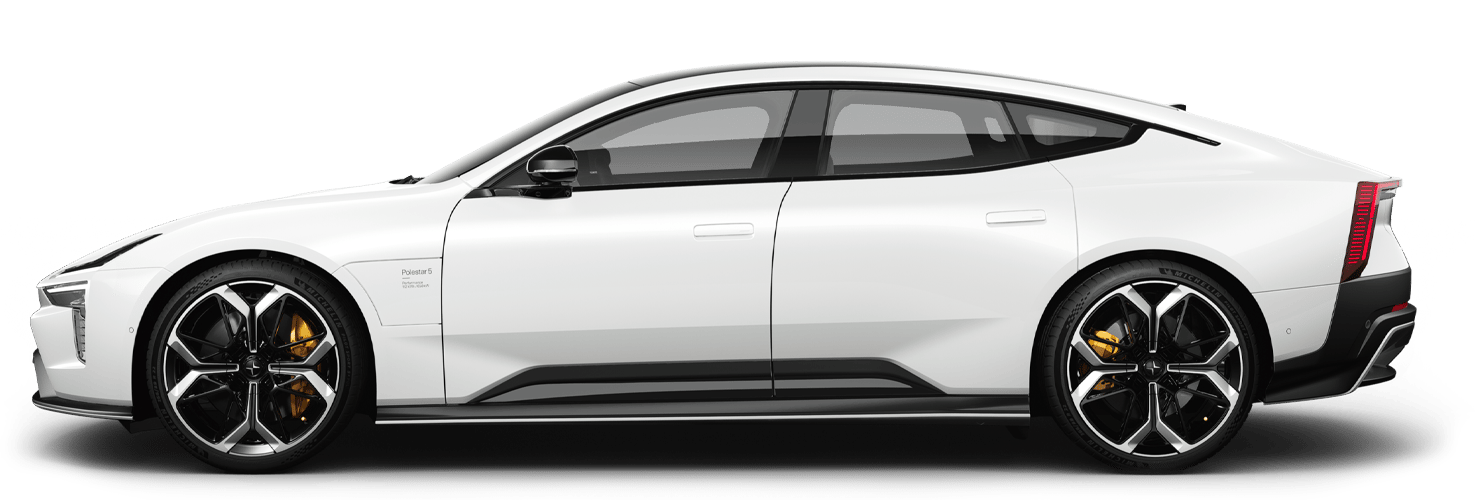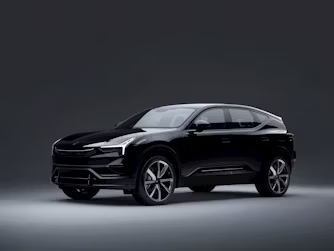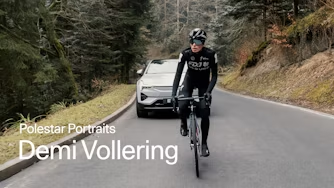Can a seaweed start-up disrupt a multitrillion-dollar industry?
It's time we talked about gas. No, not the type that spews from factories and tailpipes. The other kind. With livestock accounting for a significant percentage of global greenhouse gas emissions, agriculture lies at the heart of our changing world. Enter Sam Elsom, an Australian inventor, disruptor, and Polestar ambassador hellbent on upending the food industry — and changing the world as we know it.
We've been able to build a world-first solution. And the potential is enormous.
It's only 7am but Sam is already driving like a man on a mission. Despite the torrential rain that has buffeted the sleepy coastal town on the East Coast of Tasmania, his Polestar 3 is almost glued to the road. Over the past few weeks, Australia's island State has experienced some of the worst weather on record. It comes as no surprise, then, that its leading eco-entrepreneur is keen on getting places. And fast. "Our planet is changing faster than we have the capacity to control, but there's a small window of hope to prevent the worst possible outcome," Sam explains as we make our way to Sea Forest HQ.
Ask anyone in Australia's close-knit sustainability circles who Sam Elsom is and they'll have a story to tell. Right now, he heads up Sea Forest, a company that produces feed supplements for livestock made with methane-busting Tasmanian seaweed. But it wasn't always about food.
"I've spent about 15 years of my life in sustainability, but it was when I was in the fashion industry that I really began to focus on climate change," remembers Sam of his journey from creative director to food innovator. "I didn't come to this business with a background in seaweed or nutrition, but together with fantastic people, we've been able to build a world-first solution. And the potential is enormous."
So, how did a man with zero experience in food science find himself in the crosshairs of the trillion-dollar agriculture business?
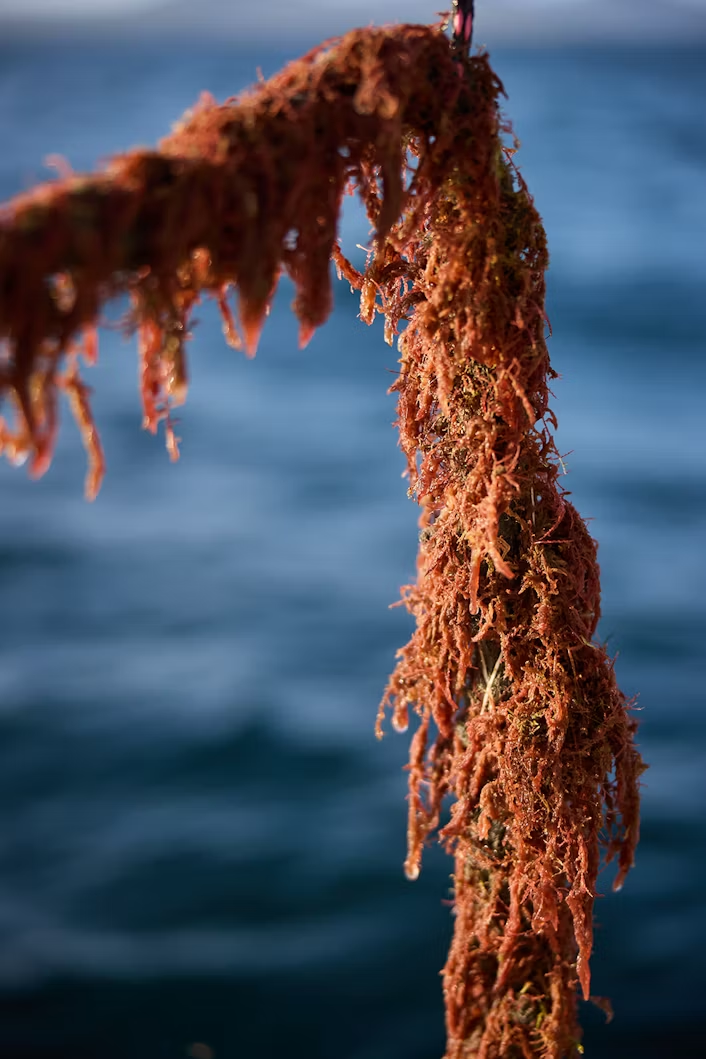
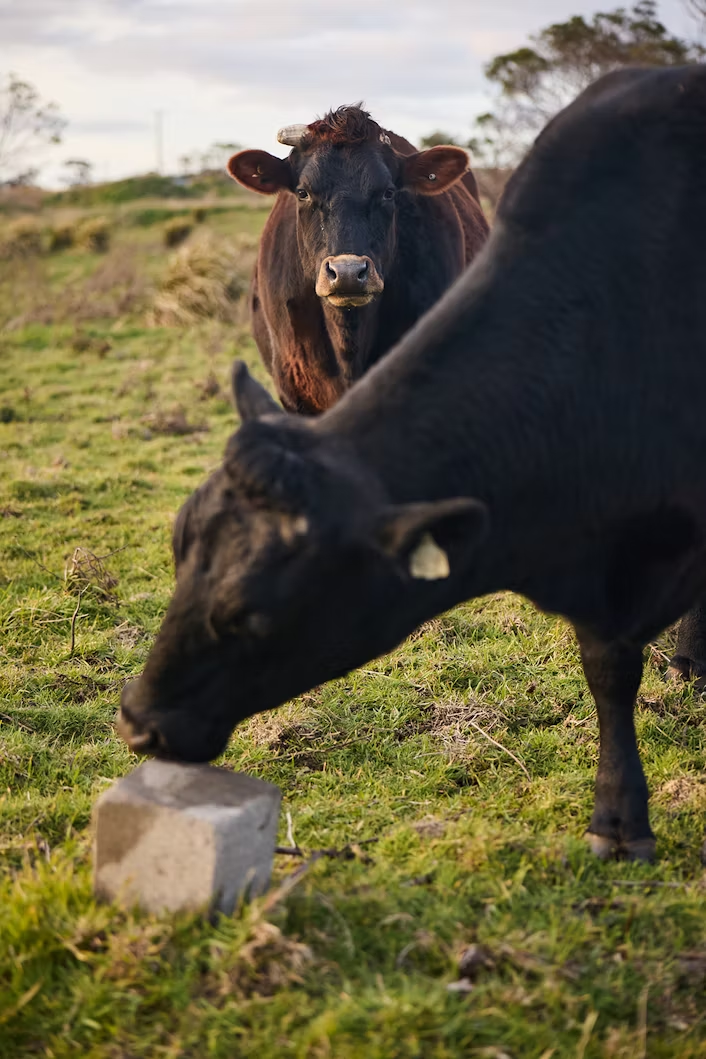
Aspara what?
Asparagopsis. A native Tasmanian seaweed, which scientists at Sea Forest – led by the company's Chief Scientific Officer, Professor Emeritus Rocky de Nys – have found significantly reduces methane production in livestock.
Here's where things get a little technical. Asparagopsis contains particular bioactive compounds that reduce the methane gas produced from fermentation in an animal's digestive tract. Simply put, the seaweed lowers methane production in animals. The outcome is transformative, with Sea Forest estimating that its feed supplement featuring these bioactive compounds can reduce methane production by up to 90 per cent.
"Sea Forest is really pioneering a new industry. It's super exciting and incredibly rewarding. In a way, what we're really doing is working with nature's intelligence and adding human ingenuity to create real-world outcomes. The potential impact is so big. It's game-changing," says Sam.
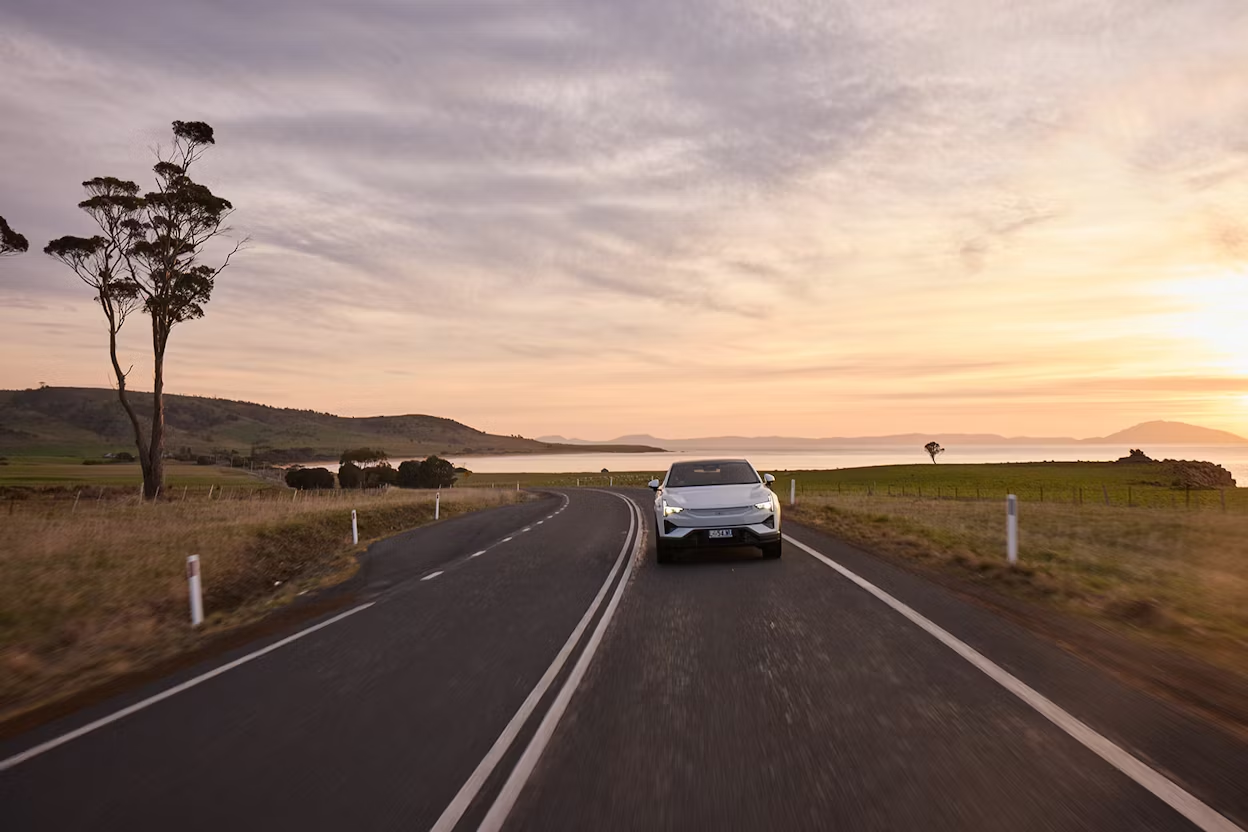

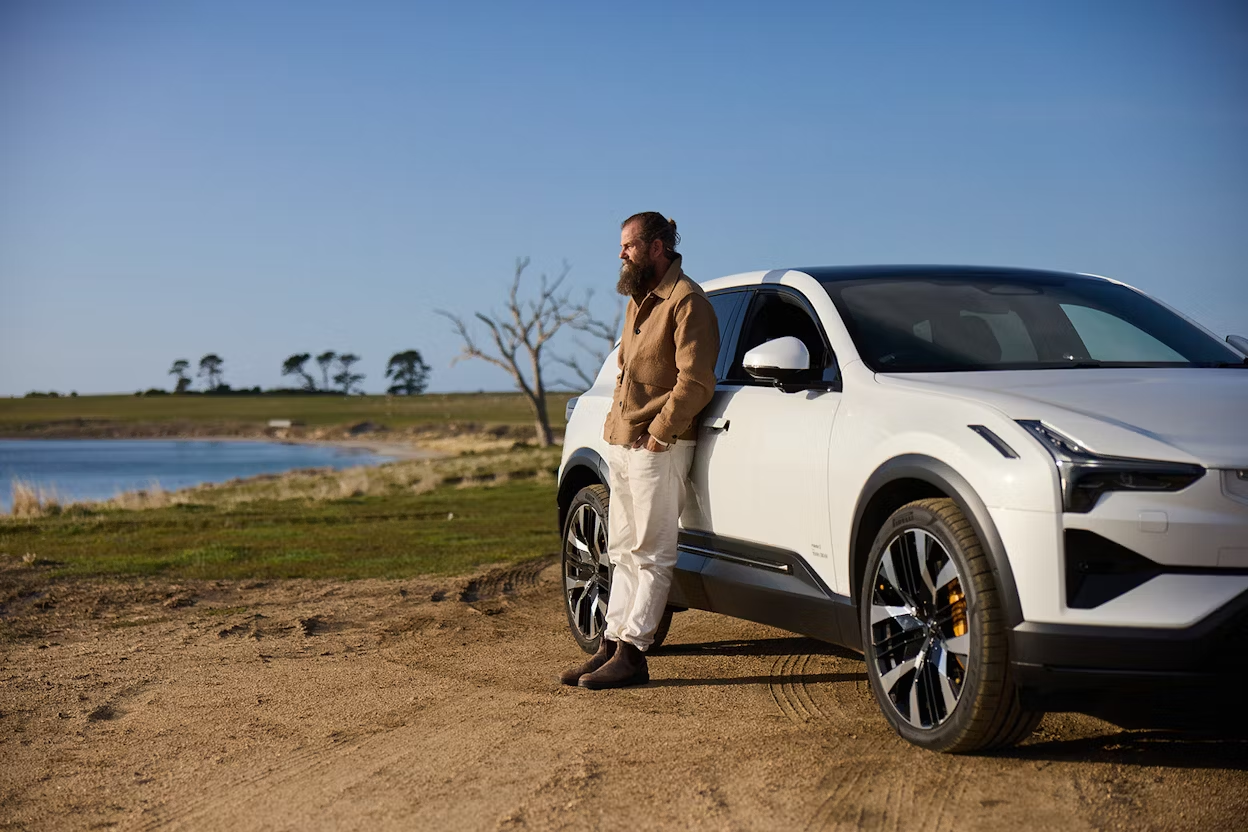



01/03
Teething problems
Unsurprisingly, it hasn't always been smooth sailing. Launching a new product in the world's largest sector, while upending decades (sometime centuries) of established business practices, was always going to ruffle some feathers. "It's a challenge," says Sam, somewhat underplaying the difficulties.
The first hurdle was straightforward enough: this type of thing had never been done before. "Everything we do, every single step of the process, has had to be thought out. Trial and error. From the boats, the way we transport the biomass, the way we deploy seaweed, the way we harvest, and the way we manufacture finished products. There are so many iterations of innovation and collaboration that have created the outcome of where we are today."
The second challenge for Sam and his team is arguably a much bigger nut to crack. Food is big business. Almost $10 trillion a year big. But more importantly, it is dominated by massive cross-continental conglomerates. "The work we're doing at Sea Forest is as much about agricultural emissions reduction as it is about food system transformation. But there are huge challenges, and we've had to collaborate right across the value chain from scientists and engineers right through to farmers and nutritionists," explains Sam. "We can't create the environmental outcomes without collaboration. We need farmers and brands willing to be bold and bring low emission products to market."
But with brands now starting to come to the table, is Sam confident he has found a viable solution to agriculture's dirty secret?
"We've taken some groundbreaking science and got it to industrial scale. But our ultimate measure of success is the impact we create on methane reduction. The next steps for Sea Forest is about taking our solution to the world."
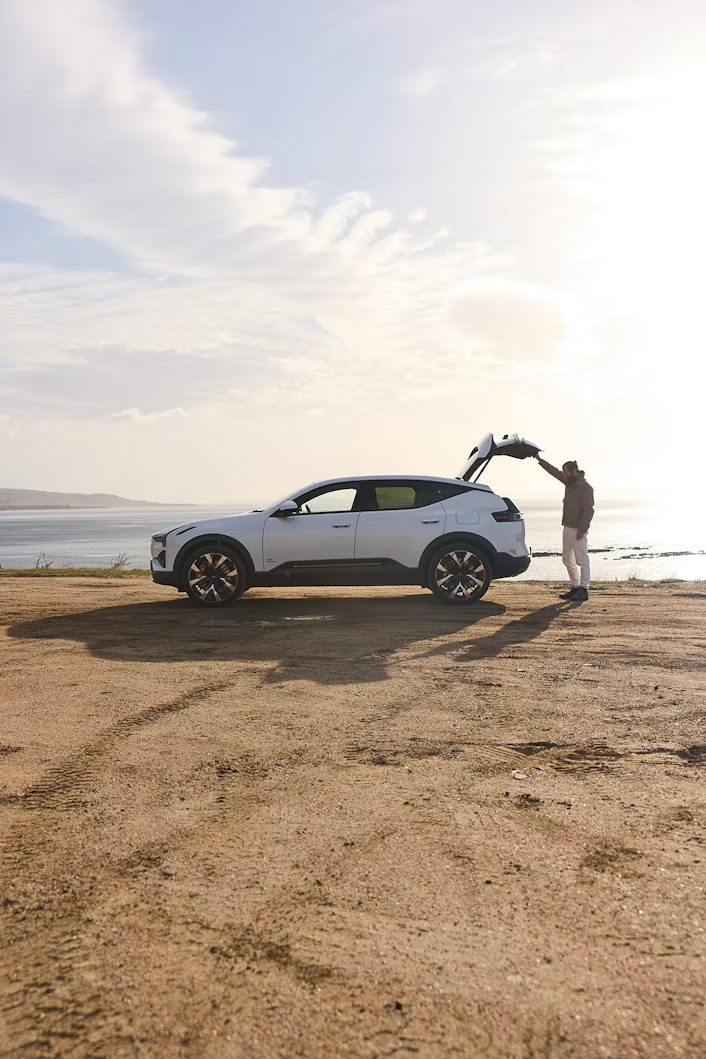
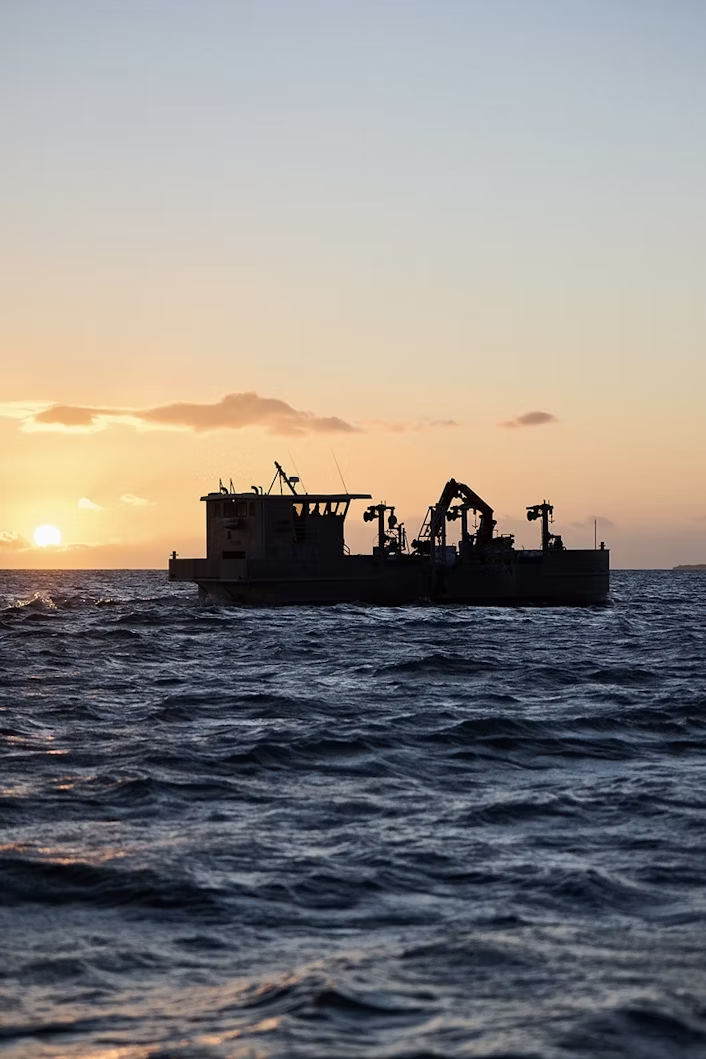
I hope that the success that we've had so far is testament to what can be achieved when people really work together
Kindred spirits
Mayfield Estate has been farming sheep for wool since the 1960s. It's a magnificent part of the island with rolling fields that meet pristine white, sandy beaches. "We've just come from Mayfield Farm, where the teams have been working with Sea Forest to reduce the emissions of its livestock. Collaboration is really important with the work that we're doing because it's one thing to grow a product that suppresses methane, but it's quite another to actually achieve the outcome."
It's clear that while success at home is important to Sam, he's got his eyes set on something much bigger.
"There are two and a half billion ruminant livestock across the planet, and we have a solution that can make an enormous impact. So, we're working hard to get into markets like Europe, North America, the UK, and Latin America and have as big an impact as we can by 2030," Sam says when talking about future plans for the company and its pellets.
It's an ambitious goal, but he takes comfort from the work fellow disruptors are doing in different sectors.
"Often, when we talk about climate change, it has negative connotations, but there's so much innovation happening. There are so many people working on these challenges, and what we really need to be doing is talking about the opportunities that we have," reasons Sam. "Think about the work that Polestar is doing in leading the EV sector on decarbonising supply chains, exploring new materials, and challenging the status quo. It’s this type of ingenuity and innovation that motivates others and provides hope for future generations."
Spend a day with Sam and you can't help but feel inspired by his quiet determination. Obstacles and challenges are merely speed bumps, never roadblocks, and despite constant twists and turns, he always manages to find a way forward.
"I hope that the success that we've had so far is testament to what can be achieved when people really work together."
